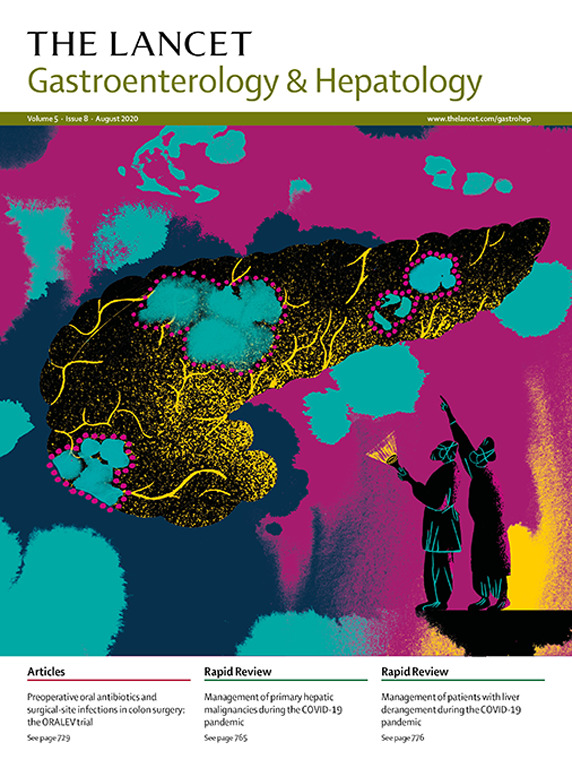Primary biliary cholangitis and the narrowing gap towards optimal disease control
IF 38.6
1区 医学
Q1 GASTROENTEROLOGY & HEPATOLOGY
引用次数: 0
Abstract
Although infrequent, primary biliary cholangitis is not indolent and remains a burdensome chronic autoimmune biliary disease. Progressive biliary injury and cholestasis results in complications of biliary cirrhosis, with reduced quality and quantity of life. Treatment advances beyond ursodeoxycholic acid and liver transplantation are notable, as efforts grow to prevent end-stage liver disease. Early identification of individuals at greatest risk for progression, in advance of cirrhosis, enhances treatment benefit. Intuitive care focuses on the best outcomes, such as biochemical control of disease (eg, normal alkaline phosphatase and bilirubin) and mitigation of symptoms (eg, pruritus). A multi-faceted approach to targeted therapeutic options is emerging to apply therapy beyond bile acid pool modification (ursodeoxycholic acid), including farnesoid X receptor agonism, peroxisome proliferator-activated receptor agonism, and ileal bile acid transporter inhibition. Obstacles to evaluating treatments include a prolonged clinical course, the difficulty in conducting long-term, placebo-controlled studies, and challenges in measuring quality of life effects. Generating robust, contemporaneous real-world evidence is therefore important in the primary biliary cholangitis space.原发性胆管炎与缩小疾病控制差距
原发性胆道胆管炎虽不常见,但并非无痛,是一种累人的慢性自身免疫性胆道疾病。进行性胆道损伤和胆汁淤积导致胆汁性肝硬化并发症,降低生活质量和数量。治疗进展超越熊去氧胆酸和肝移植是值得注意的,努力发展,以防止终末期肝病。在肝硬化发生之前,尽早识别出病情进展风险最大的个体,可以提高治疗效果。直观护理侧重于最佳结果,如疾病的生化控制(如碱性磷酸酶和胆红素正常)和症状的缓解(如瘙痒)。除了胆汁酸池修饰(熊去氧胆酸)之外,一种多面向的靶向治疗选择正在出现,包括法脂类X受体激动作用、过氧化物酶体增殖激活受体激动作用和回肠胆汁酸转运蛋白抑制。评估治疗的障碍包括临床病程延长,进行长期安慰剂对照研究的困难,以及衡量生活质量影响的挑战。因此,在原发性胆管炎领域,产生可靠的、同步的真实证据是重要的。
本文章由计算机程序翻译,如有差异,请以英文原文为准。
求助全文
约1分钟内获得全文
求助全文
来源期刊

Lancet Gastroenterology & Hepatology
Medicine-Hepatology
CiteScore
50.30
自引率
1.10%
发文量
0
期刊介绍:
The Lancet Gastroenterology & Hepatology is an authoritative forum for key opinion leaders across medicine, government, and health systems to influence clinical practice, explore global policy, and inform constructive, positive change worldwide.
The Lancet Gastroenterology & Hepatology publishes papers that reflect the rich variety of ongoing clinical research in these fields, especially in the areas of inflammatory bowel diseases, NAFLD and NASH, functional gastrointestinal disorders, digestive cancers, and viral hepatitis.
 求助内容:
求助内容: 应助结果提醒方式:
应助结果提醒方式:


